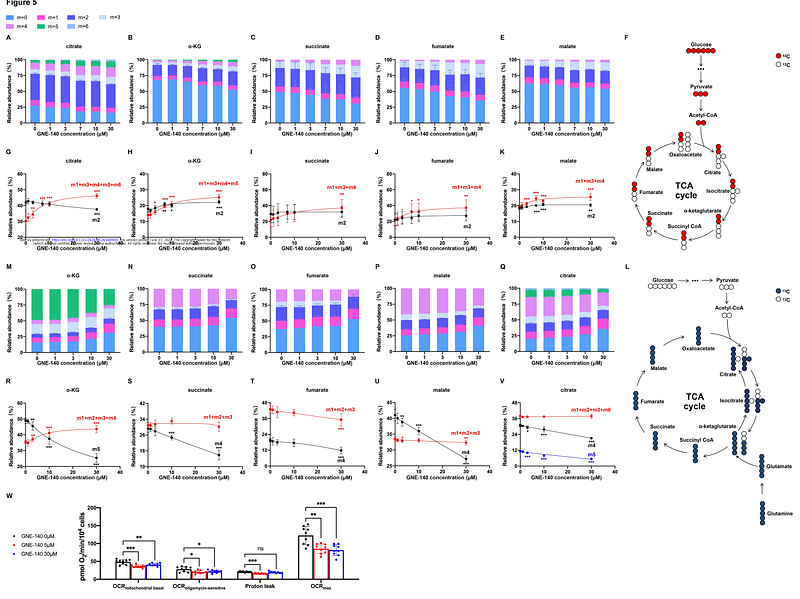Elucidating the kinetic and thermodynamic insight into regulation of glycolysis by lactate dehydrogenase and its impact on tricarboxylic acid cycle and oxidative phosphorylation in cancer cells

Elucidating the kinetic and thermodynamic insight into regulation of glycolysis by lactate dehydrogenase and its impact on tricarboxylic acid cycle and oxidative phosphorylation in cancer cells
Zeng, S.; Wang, Y.; Ying, M.; Jin, C.; Ying, C.; Wang, D.; Wu, H.; Hu, X.
AbstractLactate dehydrogenase (LDH) stands at the intersection of pyruvate metabolism. While it is believed that inhibition of LDH redirects pyruvate to mitochondrial metabolism, suppressing glycolysis and boosting oxidative phosphorylation, the mechanism remains largely unexplored. We found that individual LDH A or B knockouts had minimal impact on glycolysis, tricarboxylic acid cycle (TCAC), or oxidative phosphorylation (OXPHOS). However, combining LDH knockout with LDH inhibitor GNE-140 significantly suppressed these processes. Inhibition of LDH led to an increase in free NADH concentration and a decrease in free NAD+ concentration, the reduced free NAD+ concentration inhibited GAPDH, disrupting the balance of glycolytic intermediates, which were linked with thermodynamic shift of the Gibbs free energy of reactions between phosphofructokinase 1 (PFK1) and phosphoglycerate mutase (PGAM) in the glycolytic pathway, favoring their reverse direction. This disrupted glycolysis led to impaired TCAC and mitochondrial respiration due to reduced pyruvate and glutamine carbon influx into TCAC. Under hypoxia, LDH inhibition had a stronger effect, inducing energy crisis, redox imbalance, and cancer cell death. Our study reveals LDH\'s intricate control over glycolysis, TCAC, and mitochondrial respiration, highlighting the interplay of enzyme kinetics and thermodynamics in metabolic pathways,a crucial aspect for understanding metabolic regulation.


